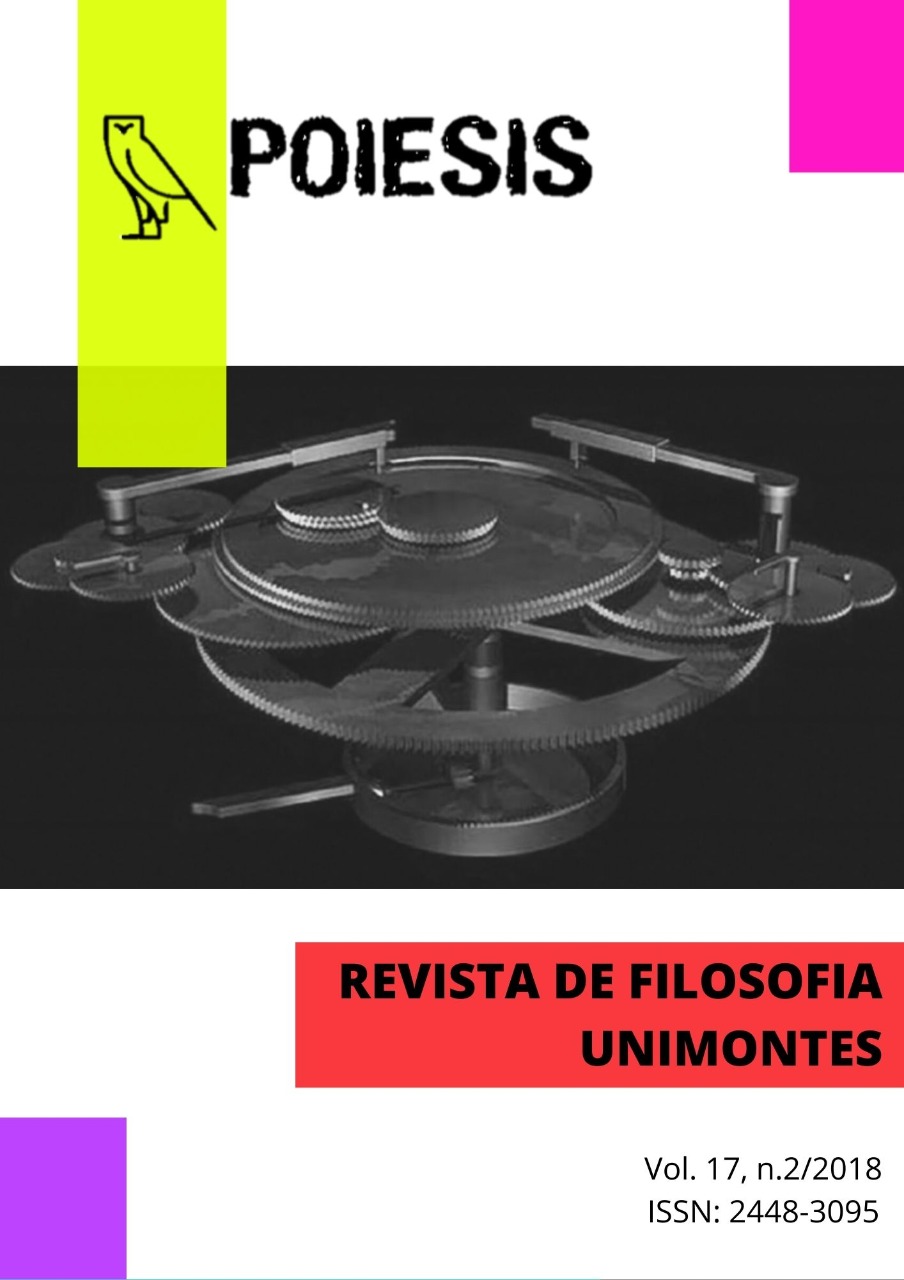Heidegger and the Play Notion as a Disposition and Bonding
Keywords:
Play; Comprehension of being; Transcendence; Disposition; Bonding.Abstract
In contemporary philosophy, approaches to the notion of play rarely refer to Heidegger; this one, in lectures given in the winter course of 1928/1929, Heidegger presented important reflections on what considered to be the primordial play of transcendence, which exerted decisive influence on authors who worked extensively the notion of play under a hermeneutic or ontological bias, such such as Hans-Georg Gadamer in Truth and Method (1960), and Eugen Fink in Play as a Symbol of the World (1960). This article intends to deal with the notion of play developed in the work Introduction to Philosophy, which constitutes the record of these lectures. The goal is to demonstrate that, according to Heidegger, being-there (Dasein) is the one to whom his own being is always at stake, for therein lies a peculiar opening which is the basis of the living and pulsating behavior of the human in general; because being embraced by the being in the whole, as moved by the understanding of being and by transcendence, the being-there is always placed in a play, in a "play" that constitutes the very play of life (Spiel des Lebens). For Heidegger, before the play, and any rule established through it, there is the playing (spielen), the original movement that engages and drives the being-there towards the world, establishing the bonding with its worldliness (Weltlichkeit). Being at stake is originally driven by the disposition (Stimmung), state of mood or attunement, which leads the being-there to project itself and to play its own being acting in the space of play (Spielraum) of transcendence, a space to be continuously formed and figured through a "playing the play" (Spiel).
Downloads
References
BETANIN, Tatiana. “Transcendência e jogo na ontologia fundamental de Martin Heidegger”. Dissertação (Mestrado em Filosofia). Programa de Pós-graduação em Filosofia: UFSM, 2004.
HEIDEGGER, Martin. Introdução à Filosofia. Trad. Marco Antônio Casanova, - 2ª ed. – São Paulo: Editora Martins Fontes, 2009.
__________. Os conceitos fundamentais da metafísica: mundo, finitude, solidão. Trad. Marco Antônio Casanova. Rio de Janeiro: Forense Universitária, 2006.
__________. Ser e Tempo. Parte I. Trad. Marcia Sá C. Schuback. 15ª Ed. Petrópolis RJ: Editora Vozes, 2005.
__________. Einleitung in die Philosophie (Wintersemester 1928/29) – (GA 27). Hrsg. Von Otto Saame und Ina Saame-Speidel. Frankfurt am Main: Vittorio Klostermann, 2., durchgesehene Auflage 2001.
ONATE, Alberto M. “Husserl/Fink: sobre os limites da transcendentalidade”. In: A filosofia transcendental e a sua crítica. Coimbra - Portugal: Imprensa da Universidade de Coimbra, 2015.
REIS, Róbson R. Dos. “Heidegger: a vida como possibilidade e mistério”. In: Rev. Filos., Aurora, Curitiba, v. 24, n. 35, p. 481-507, jul./dez. 2012.
RODRIGUES, Fernando. “Heidegger e a metafísica do Dasein (1927-1930): uma interpretação à luz dos conceitos de liberdade, vínculo e jogo da vida”. Tese (Doutorado em Filosofia) – Instituto de Filosofia e Ciências Humanas da Universidade Estadual de Campinas: UNICAMP, 2014.





.png)

